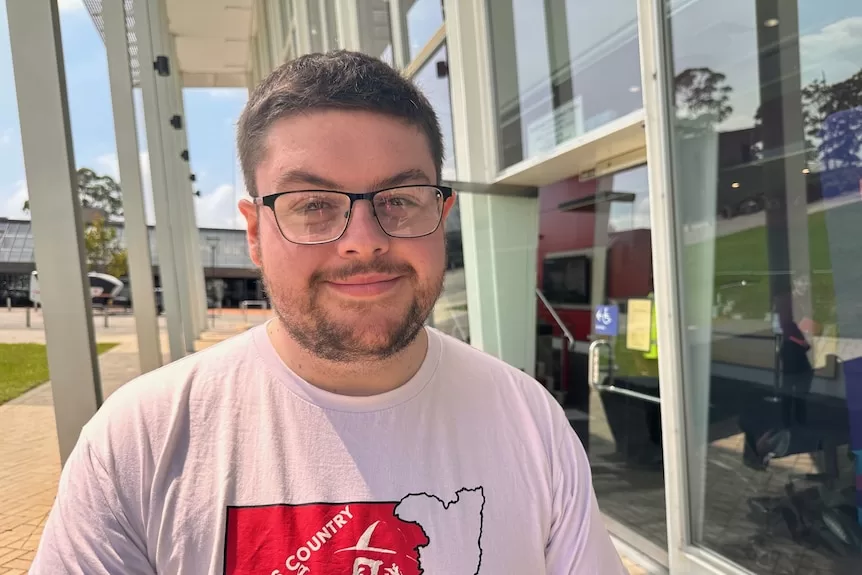Prime Minister Anthony Albanese has leaned into the theme of the “great divide” in Australian politics at the New South Wales Country Labor Conference, saying his party is working to address the cost-of-living crisis while the Liberals are not.
“Friends, this is the great divide in Australian politics — Labor want you earn more and keep more of what you earn and the Liberals want you to work longer for less,” Mr Albanese said.
The prime minister took the opportunity to spruik his government’s changes to stage 3 tax cuts announced last month.
“Across NSW, in the bush, in regional cities like this, 960,000 people will be getting a tax cut and over 86 per cent of regional workers across the nation will be getting a bigger tax cut than they would have under the Morrison government’s plan of five years ago,” he said.
His speech at Nowra on the South Coast on Sunday came just minutes after the delegates heard concerns about 47 schools in regional NSW without access to fresh water.
The Calare Federal Electorate Committee [FEC] urged Labor to ensure the NSW government provides fresh water to schools in western parts of the state and some areas in the Hunter.
The issue was first flagged in a report provided to the government in late 2021 and was used by Labor to criticise the former NSW Coalition government in a 2022 budget estimates hearing.
Addam Parrish from the Orange branch of the Calare FEC said its motion to address the issue was about equity.
“Schools should not be with out clean, good running water outside of extreme short-term situations,” Mr Parrish said.
“I just think it is not good enough.”
While the Young Labor conference has previously supported a similar motion, this is the first time such a motion has been supported by a senior conference.
“As little as it sounds to call for water in school – it would give people a better chance to have an equal education to people in other parts of the state.”
Mr Parrish acknowledged the supply of fresh water would come at a cost, but said constantly shipping of truckloads of bottled water was also expensive.
Cleaners want end to privatisation
Members of the United Workers Union (UWU) also addressed the conference during the morning as part of their campaign to de-privatise cleaner contracts and have the state government directly employ all those who clean public buildings including schools, TAFEs and police stations
Delegate Judith Barber said decades ago the work of cleaning government buildings was privatised and it should be reversed.
“The contracts are under a 12-month roll over period, so we are asking the NSW government to end privatisation as their election policy,” Ms Barber said.
The NSW government has committed to a review of the cleaner’s situation and is working to finalise a report on the issue.
“They are listening, they want to know our plights and seem to be supportive,” Ms Barber said.
“The government only has to provide a service, contractors … need to make profit.”
Wendy Murphy from Shellharbour said she had been cleaning for 17 years and living on a 12-month rolling contract caused great uncertainly for her family.
“You don’t know where you are going to go, which contractor you will work with, what wages will look like and how it will pan out,” she said.
“Even supplies and equipment — if you don’t have them you can’t work do your job correctly.”
A spokesperson for NSW Education and Early Learning Minister Prue Car said the previous government’s “addiction to privatisation led to a situation where profits always came before those who work, teach and learn in our schools.”
“We have moved quickly to deliver on our election commitment to review these contracts and work towards getting a better deal for cleaners, parents, teachers, support staff and, importantly, students,” the spokesperson said.
Motions from the conference will be sent to both the NSW and federal governments for consideration.
The government was also contacted for comment about the provision of fresh water to regional schools.
